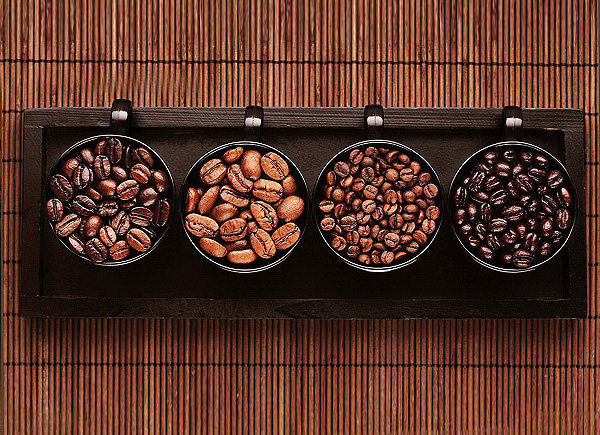The deep coffee emotion comes from the mellow taste.
Coffee is an emotion. This emotion comes from the mellow taste, but also from the quiet time brought by coffee in the precipitation of thoughts, so that they are closer to their own more understanding. And when coffee and my own career more and more close, I can always feel the coffee to my power, is the pursuit of ideal work motivation, but also overcome the difficult healing power of life. I am also deeply aware of the deep and lingering feelings between colleagues and farmers.

During my 6 years in China, I realized my rural dream. It was really important for me to have my family life and the essential warmth of home in China. To me, Lijiang is just a noisy "big supermarket", Kunming is only a transit "intermediate station", Pu 'er is a "city center" where you can buy cheese. I originally lived on a farm until two years ago when I moved to an apartment in town with my wife and daughter. Because the dogs and chickens on the farm are so noisy, there were two chickens at first, now there are 20 chickens, they are always quarreling, so noisy that my daughter can not sleep. My daughter, who is four years old, naturally believes that Dad makes all the coffee in the world. She always pointed to the coffee displayed in the supermarket and called: Coffee! Daddy! (Coffee! Dad!), I wonder if the coffee gene in our family will survive in her.
Six years ago, when my Chinese partner Hou Jiazhi and I just started working here, driving a small red car with a nestle logo all over the mountains every day, the local farmers were just afraid and watching. No one dared to come up and chat up with him, a translator who spoke Cantonese, let alone talk to a blonde foreigner like me beside him. Some even said that this Chinese was too rich to hire a foreign driver. Gradually, the farmers became accustomed to seeing the small red car. Boldly a little bit on the tentative asked the old Hou,"you painted the birds and bird nest so small, you are the quail eggs, right?" This makes me and the old Hou really laugh. But it is this small red car that seems to collect quail eggs that permeates coffee culture into Pu 'er little by little. Now everyone is used to me. When I drive on the road, I often open the window, so that it is convenient to extend my arm and say hello to the farmers I know along the way.
We often ask for hardship when we visit the field. We have to go to some remote mountain villages. This is the only way to go to the farmers and solve their problems. On one trip, we met Zhang Kui, a new tea farmer who used to grow tea for a living. In 2010, he bought 5000 coffee seedlings and prepared to take out more than 10 acres of land to grow coffee. "My land is two kilometers away from here. It's not easy to walk." Zhang Kui said to Lao Hou: "But (coffee) Miao seems to be sick. Can he (refer to me) go and have a look?" We immediately drove to follow Zhang Kui, who rode a motorcycle, to his newly reclaimed land. I praised Zhang for "doing a good job" because Zhang left trees in the fields. Tea farmers are prone to make the "Chinese mistake" when switching to coffee: imitating the method of growing tea, burning the land, cutting down miscellaneous trees, and cleaning the ground. Because coffee is also a mountain terraced layout, but unlike tea trees, this tropical crop needs shade from trees during its growth. To save the burned land, I instructed Zhang to replant trees in the field-one large tree every ten meters and spread them out. He carefully looked at the slightly withered coffee tree leaves pointed out by Zhang Kui and concluded that the land was short of boron. He instructed him to apply 35 jin per mu.
As agronomic consultants for Nestlé, we work with farmers every day. We will first go to the field of Kannong to inspect whether the land is suitable for coffee growth. Only when the land is suitable can Kannong buy seeds. After that, Kannong will go to our seedling base for free to learn seedling raising. When the seedlings grow for a certain period of time, we will assist Kannong to transplant the seedlings to the coffee garden in the mountains. During the coffee growth period, agronomic experts will continue to track and teach coffee farmers how to cultivate, fertilize, deinsectize and defrost; after coffee enters maturity, experts will also provide technical support to coffee farmers in picking, shelling and drying. After providing a series of free services, we don't force coffee farmers to sell coffee to Nestle. We not only teach farmers to observe coffee prices on the New York futures market, but also teach farmers how to judge the quality of coffee through cups. In this two-way selection link, we and coffee farmers are not so much a buying and selling relationship, but more like a teacher-student relationship.
During the buying season, I can recognize the origin and owner of coffee at the sight of a driver. Because they're like brothers to me. I also often roast some high-quality coffee myself as a gift to farmers. On the one hand, I can tell farmers what high-quality coffee tastes like. On the other hand, farmers can also give these coffees as gifts to family and friends, so that more people can share our deep feelings for coffee.
In my small office, Pu 'er's Arabica coffee went to the world. On the wall of my office are beautiful pictures of coffee gardens taken by my wife. Only those who have personally experienced the coffee garden and coffee growing process can understand the mood of people who love coffee like me and find such a perfect shooting angle. Only those who know coffee well can capture these perfect moments of coffee cultivation. Every blooming flower, every full fruit, every smiling face welcoming harvest in the photo records not only our painstaking efforts, but also our love and respect for coffee and coffee farmers.
Important Notice :
前街咖啡 FrontStreet Coffee has moved to new addredd:
FrontStreet Coffee Address: 315,Donghua East Road,GuangZhou
Tel:020 38364473
- Prev

Coffee Basic Knowledge Old Shanghai Cafe "Dejected Exit"
In the 1920s and 1930s, many luxury Parisian cafes sprang up overnight in the French Concession. At that time, coffee drinking was a pleasure reserved for the upper classes and the intelligentsia. Located in Hongkou Duolun Road, the coffee shop witnessed the elegant demeanour of the left-wing scholars. How many vivid and interesting plots from the public space in this metropolis
- Next

Vienna's "Coffee Center" tourist attraction
On Montsio Street in Barcelona, I found the Four Cats Cafe, where tourists stopped at the entrance to examine the cafe's small front door and the poster of Ramon Casas, and a middle-aged woman guided them to their seats, giving a very brief history of the cafe. Many tourists come for Picasso. 1899, age 17.
Related
- Beginners will see the "Coffee pull flower" guide!
- What is the difference between ice blog purified milk and ordinary milk coffee?
- Why is the Philippines the largest producer of crops in Liberia?
- For coffee extraction, should the fine powder be retained?
- How does extracted espresso fill pressed powder? How much strength does it take to press the powder?
- How to make jasmine cold extract coffee? Is the jasmine + latte good?
- Will this little toy really make the coffee taste better? How does Lily Drip affect coffee extraction?
- Will the action of slapping the filter cup also affect coffee extraction?
- What's the difference between powder-to-water ratio and powder-to-liquid ratio?
- What is the Ethiopian local species? What does it have to do with Heirloom native species?

